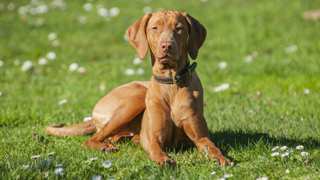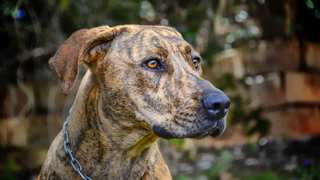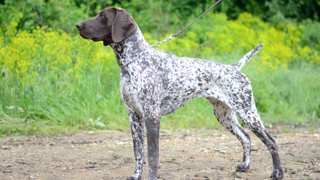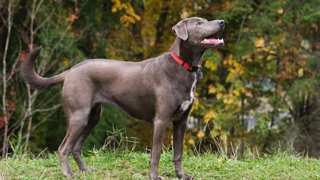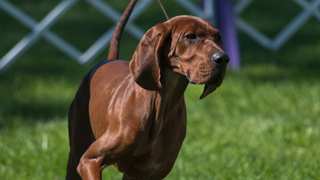Since Carolina Dogs are semi-feral animals thought to be direct descendants of Dingoes and wolves, their exercise requirements are pretty high. These dogs are independent animals with a strong "pack" mentality, so their ideal activities will allow them to run free in a large, rural (yet enclosed) outdoor space--preferably with other dogs. They also make good jogging and bicycling companions.
The typical adult Carolina Dog, depending on its age and overall activity level, will need at least 90 minutes of outdoor exercise per day, which you can accomplish with a couple of long walks (or jogs/bike rides) and an extended period of play. You can start exercising your Carolina puppy at three months of age by taking it on short (10- to 15-minute) walks, then you can increase the walks' length and frequency as the puppy grows.
A few things to consider when exercising your Carolina Dog: first, puppies younger than eight months old shouldn't participate in activities that include a lot of jumping, running, and navigating of stairs, as doing so can injure their still-developing joints and bones. And all Carolina Dogs, regardless of age, will definitely need to be leashed when in public. These dogs have high wandering tendencies, so they'll easily run off if given the chance; they also have very strong prey drives, so they'll instinctively chase small animals--birds, squirrels, cats, even small dogs--if allowed. A leash will help control your Carolina Dog in these situations. Even when exercising in your own yard (which is hopefully very large!), the area will need to be securely fenced. Even after about 100 years of domestication, Carolina Dogs still have "wild-animal" instincts, so they'll quickly escape so they can roam free unless closely supervised.
Precautions aside, exercising a Carolina Dog every single day is an absolute must. If bored or restless, these dogs will become frustrated, destructive, disobedient, and are likely to escape so they can be free--so consistent exercise is great for both the dog and its owners. A few exercise ideas:
- Walking/Jogging/Bicycling: Two 45-minute walks (or 30-minute jogs or bike rides) per day is a good target
- Outdoor Roaming: Carolinas love to run/explore in large outdoor spaces, preferably with other dogs
- Tug-of-War: Good indoor, rainy-day activity; use a rope or old towel
- Hiking: Puts a Carolina Dog in its natural element; bonus if you can find a remote area where the dog can be off-leash
- Dog Park: If properly socialized from puppyhood, a Carolina will enjoy the company of other dogs; a leash is recommended
If you must keep your Carolina Dog indoors for extended periods, it'a a good idea to give the dog access to one or more balls or toys that will allow it to burn excess energy. It's also recommended that you have a consistent exercise schedule for the dog, such as walks/jogs/bike rides after breakfast and dinner and a play period in the afternoon

